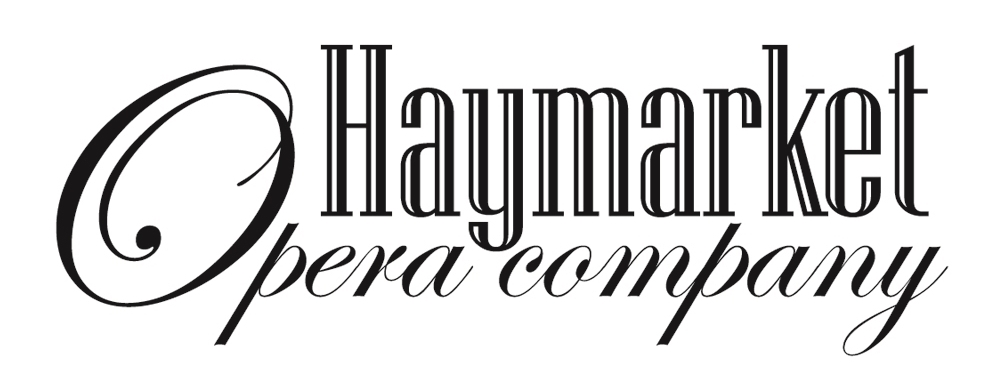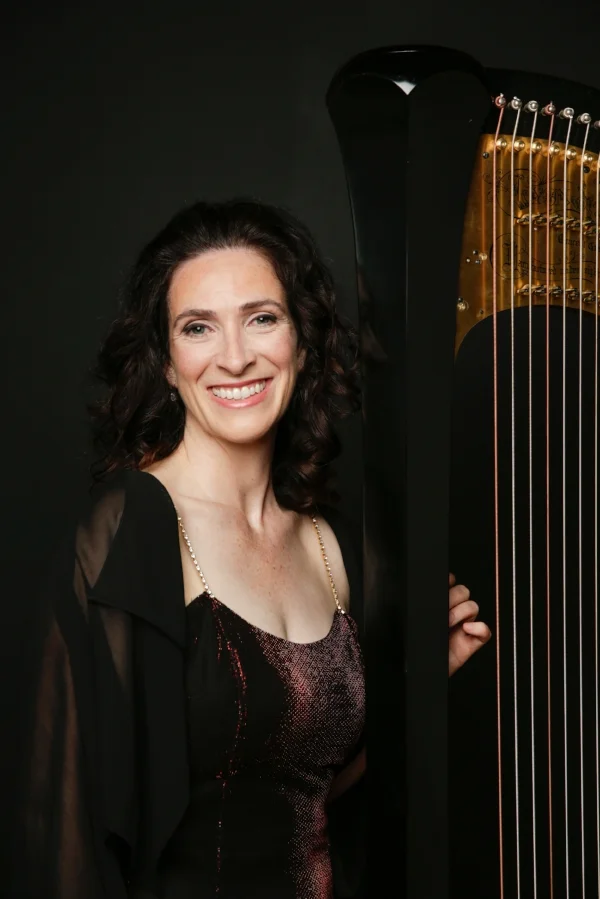Concert harpist Dr. Alison Attar specializes in contemporary and Baroque music. A champion of new music, Attar performs regularly with several new music groups, including the Chicago Symphony Orchestra’s MusicNOW, Fulcrum Point, and Contempo (formerly Contemporary Chamber Players). One of Attar’s greatest joys is working and collaborating with living composers, including George Crumb, Osvaldo Golijov, Sofia Gubaidulina, Marta Ptasznska, Bernard Rands, Laura Schwendinger, Augusta Reed Thomas, and Param Vir, among others. She was a founding member of the quartet Pinotage (flute, harp, viola and mezzo-soprano) and the Marinos Trio (guitar, harp and mandolin).
Attar's interest in historical harps, specifically multi-row instruments, has led to performances with Boston Baroque, Boston’s Handel & Haydn Society (including a US tour and performances at the 1996 Edinburgh Festival in Scotland, the late Christopher Hogwood conducting, Mark Morris choreography), Chicago Opera Theater, the Lyric Opera of Chicago, Chicago’s Music of the Baroque, and Canada’s premiere Baroque orchestra Tafelmusik. Attar has also performed and recorded with San Francisco’s Philharmonia Baroque Orchestra and Opera Lafayette in Washington D.C.
Additional highlights of Attar’s career include a 2017 Cuban tour as a guest harpist with the Chicago Harp Quartet, the Chicago Symphony’s 2014 Beyond the Score project “A Pierre Dream,” and two full cycles of Der Ring des Nibelungen with the Lyric Opera of Chicago. She has also performed with Grant Park Symphony Orchestra, Jacksonville Symphony Orchestra, Milwaukee Ballet, Skylight Music Theatre, Saint Paul Chamber Orchestra, Midsummer’s Music Festival (WI) and Naples Philharmonic Orchestra (FL). Attar toured Taiwan with Chicago’s Symphonic Pops Orchestra and served as Principal Harpist for Arnold Roth’s Chicagoland Pops Orchestra, where she performed with a myriad of popular singers.
Attar is highly regarded by her colleagues for her professionalism, leadership, versatility, vibrant and expressive sound and her uncanny rhythm. Dr. Alison Attar holds a B.M., M.M., and D.M. in harp performance and a B.A. in Italian culture, all from Northwestern University. Her primary teachers include Elizabeth Cifani, retired Principal Harpist of the Lyric Opera, and Elizabeth Borsodi-Wolkstein of Madison, Wisconsin. She can be heard on over a dozen recordings and has appeared variously on WFMT and WBEZ radio. Attar resides in a unique conservation community outside of Chicago with her husband, their two children, and a menagerie of rescued pets.
Hear Allison in Oratorio per la Settimana Santa March 8 & 10, 2018 - Get your tickets now!
How did you get started in music?
I started ballet lessons at the age of 4.
How did you come to play your instrument?
I heard the harp on a recording and asked my parents for lessons. I had never even seen a harp before and was completely smitten after my first lesson.
What is the biggest challenge you face as a musician?
I have an autoimmune disorder called ankylosing spondylitis (AS), which is a chronic inflammatory disease affecting the spine, eyes, and entheses. AS is a daily battle for me.
Do you have a favorite performer?
Ohhh. That’s a challenging question. Claude Chalhoub.
What are a few of your favorite books about music?
“The Rest is Noise” by Alex Ross, “Stormy Applause” by Rostislav Dubinsky.
What else are you reading?
I just finished “The Sea, the Sea” by Iris Murdoch and “Elegy for Iris: A Memoir” by her husband John Bayley. I am currently reading Salman Rushdie’s “Midnight’s Children” with my 14-year-old son.
Who are your favorite 17th- and 18th-century composers?
Monteverdi, Lawes, Lully, Marais, JS Bach, Weiss, Spohr, Gluck.
If you were stranded on a desert island, is there one piece of music you would like to have with you?
Bach Cello Suites.
What drew you to early music and period instrument performance?
I love the character of sound produced on early harps.
How many instruments do you own?
Six harps (2 pedal harps, one Baroque triple harp, one Renaissance double, one gut-strung Celtic harp, and a small lap harp), a piano, a clarinet, a French horn, a trumpet, an angklung, and a kantele.
Which one do you play the most?
My concert grand pedal harp.
What are the main differences between your period instrument and its modern version?
The accidentals on a modern harp are produced using the pedals. The accidentals on late Renaissance and Baroque harps are produced using an extra row of strings.
What do you love about HOC?
Besides Craig Trompeter? I love that HOC gives voice to composers whose work would not otherwise be heard.
Do you have a favorite rehearsal or concert memory from a past HOC event?
I am a HOC newbie!
What is your favorite thing to do when you’re not making music?
I love to be outside.

